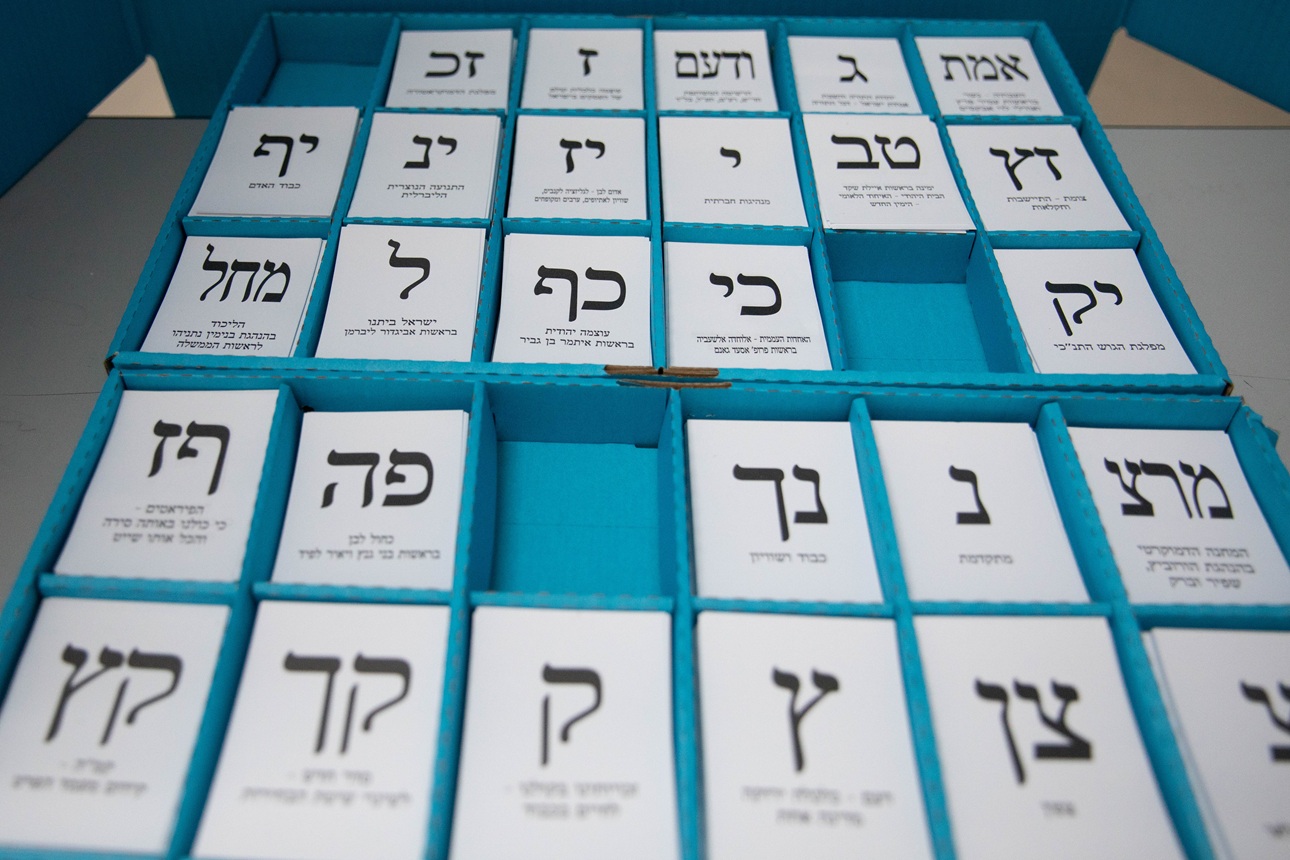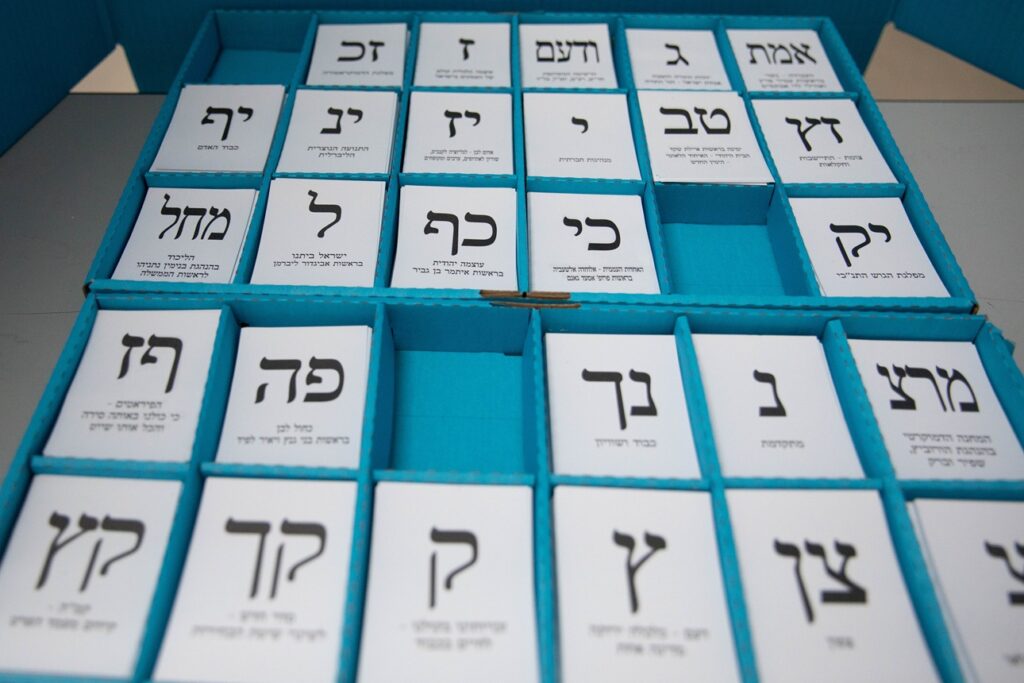NepalIsrael.com auto goggle feed
Instead of debating electoral reforms that seek to preserve and protect the political interests of those in power, let us focus on electoral reform, such as a semi-open ballot system, that would improve governance, increase accountability, and strengthen democracy.

View of voting notes at a voting station in Jerusalem, during the Knesset Elections, on September 17, 2019 | Photo by Yonatan Sindel/Flash90
In Israel, electoral lists running for the Israeli Parliament (Knesset) must pass a certain electoral threshold to qualify to hold office. A debate is currently playing out around lowering the electoral threshold ahead of the 2026 elections—such a move would not herald a change in Israeli politics, and certainly not a positive change; rather, at most, it would lead to more of the same. Moreover, it takes attention away from potential electoral reform that could actually improve governance and accountability.
The electoral threshold, the percentage of votes required for a list to be elected to the Knesset, was raised to its current level, 3.25%, in 2014. While there were certainly political interests involved in this decision, it was also made in an effort to reduce the number of party groups in the Knesset and thereby strengthen governability. Yet it is doubtful whether it achieved its goal: parties learned to bypass the electoral threshold by forming blocs during elections and then splitting up once in office. The most prominent recent example is the Religious Zionism list, which, immediately after the last elections, split into three parties: Religious Zionism headed by Bezalel Smotrich, Otzma Yehudit headed by Itamar Ben-Gvir, and Noam headed by Avi Maoz.
While increasing the threshold did not achieve this goal, it is also unclear how lowering the electoral threshold would help Israeli politics. The initiators of the reform do not even attempt to conceal their intentions: to make it easier for the smaller, existing parties, from Religious Zionism to Hadash, which, according to the latest polls, are struggling to pass the electoral threshold on their own. Lowering the electoral threshold is not intended to bring new voices into the Knesset, but only to assist those who are already there, preserving sectoral and polarized politics. It will certainly not reduce fragmentation in the Knesset, and would likely only increase it. Even from a comparative perspective, the present electoral threshold in Israel is entirely reasonable and not very high.
No less important, the focus on the electoral threshold diverts attention from the real, significant reforms that are needed in Israeli politics. These are a long series of critical amendments relating to improving the electoral system, strengthening the Knesset, streamlining the work of the government, and rehabilitating the parties.
One of these reforms, which is relatively simple, is common globally, and enjoys broad support in Israel, is the “semi-open ballot.” This is a system in which, on election day at the polling station, citizens can choose not only their preferred electoral list but also mark, within that same list, several candidates whom they personally support. Candidates who receive a certain number of personal votes, as determined by law, will be “moved up” within the list (but the first place—the party head—will be reserved and will not be changed). Thus, voters of each list will be able to influence the order of candidates and also take a larger role in choosing the identity of their representatives in the Knesset.
Such a system exists in many developed democracies, such as the Netherlands, Belgium, and Austria. Among other things, it expands citizens’ ability to express their preferences precisely, increases transparency in the composition of candidate lists, and strengthens the responsiveness and accountability of elected officials, who will know that the voters of the list can reward or punish them in the next elections.
Instead of changing the rules of the game to save parties that do not pass the electoral threshold, it is time for reforms that will truly strengthen Israeli democracy and society. The semi-open ballot is a clear example of such a reform.
This article was published in the Jerusalem Post
The post”A Lower Threshold is Not the Electoral Reform Israel Needs” is auto generated by Nepalisrael.com’s Auto feed for the information purpose. [/gpt3]




